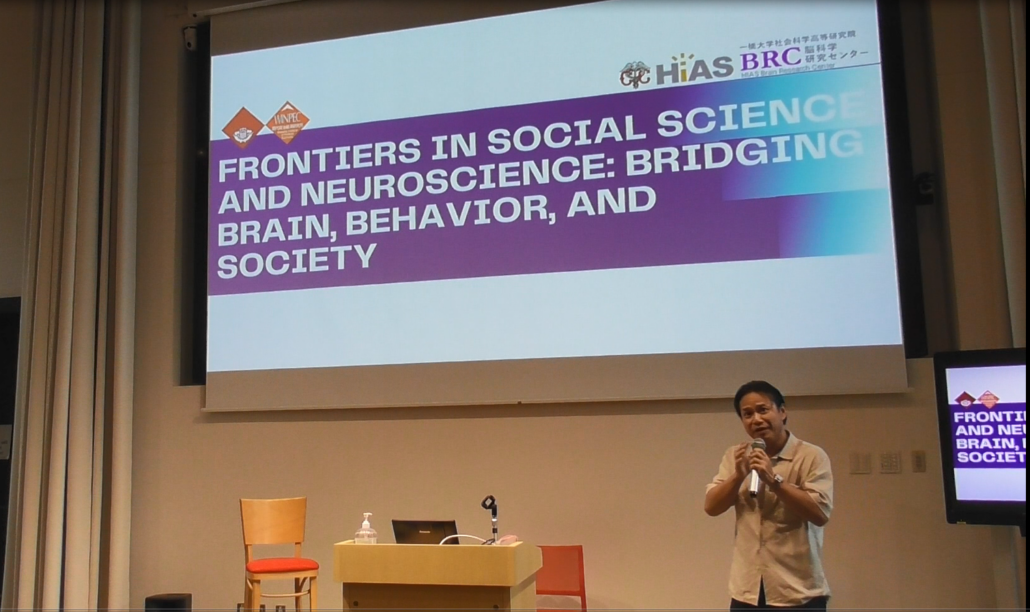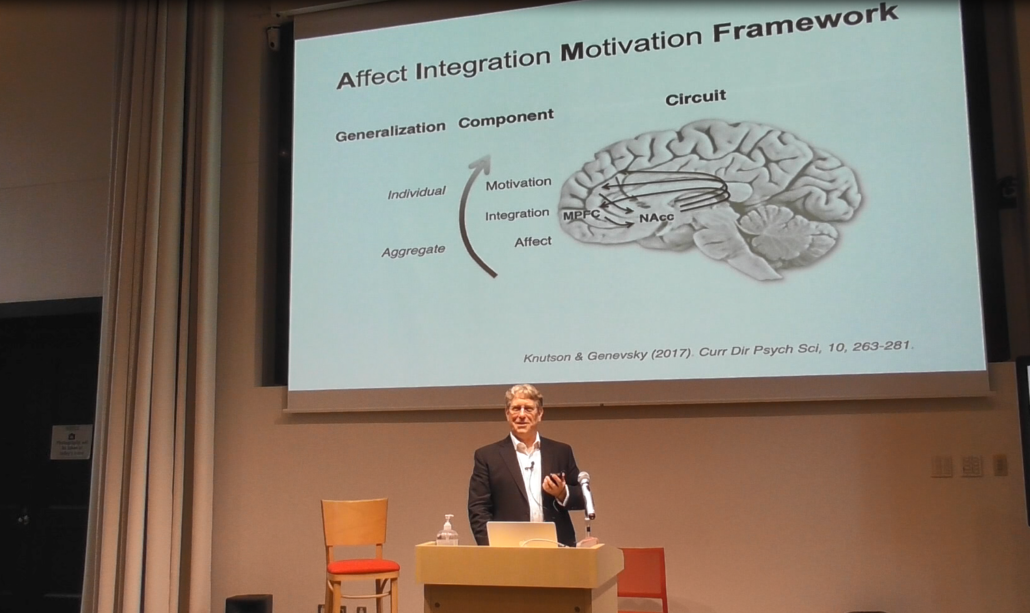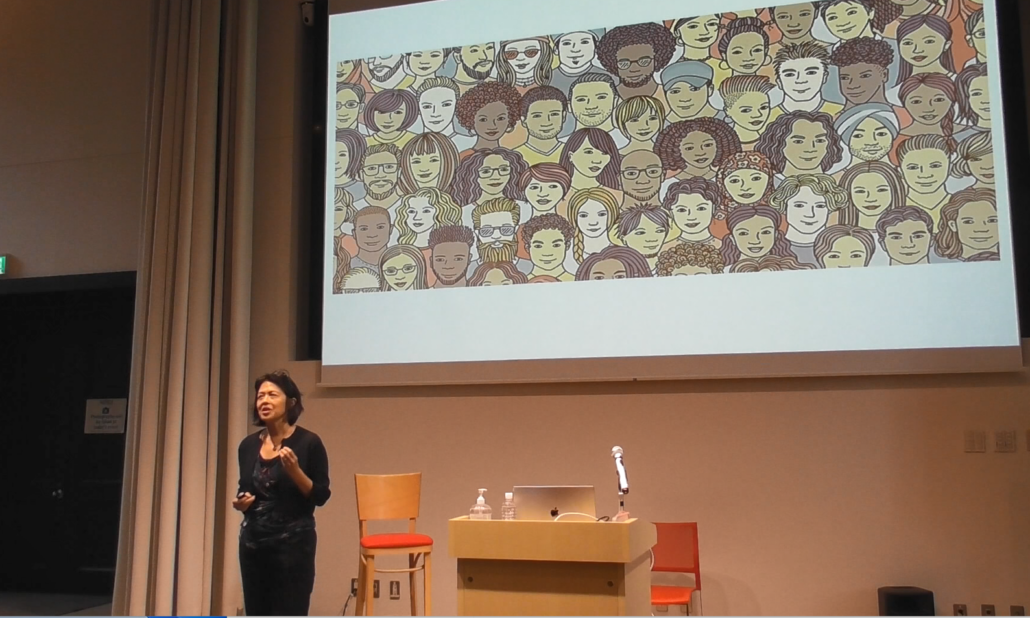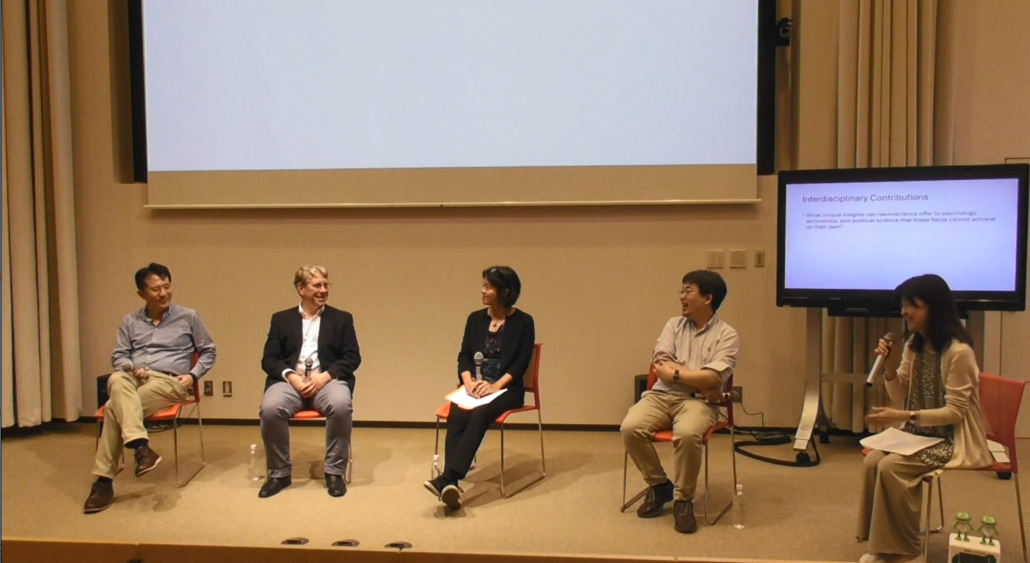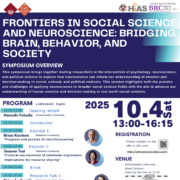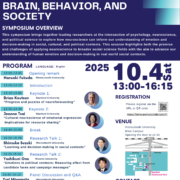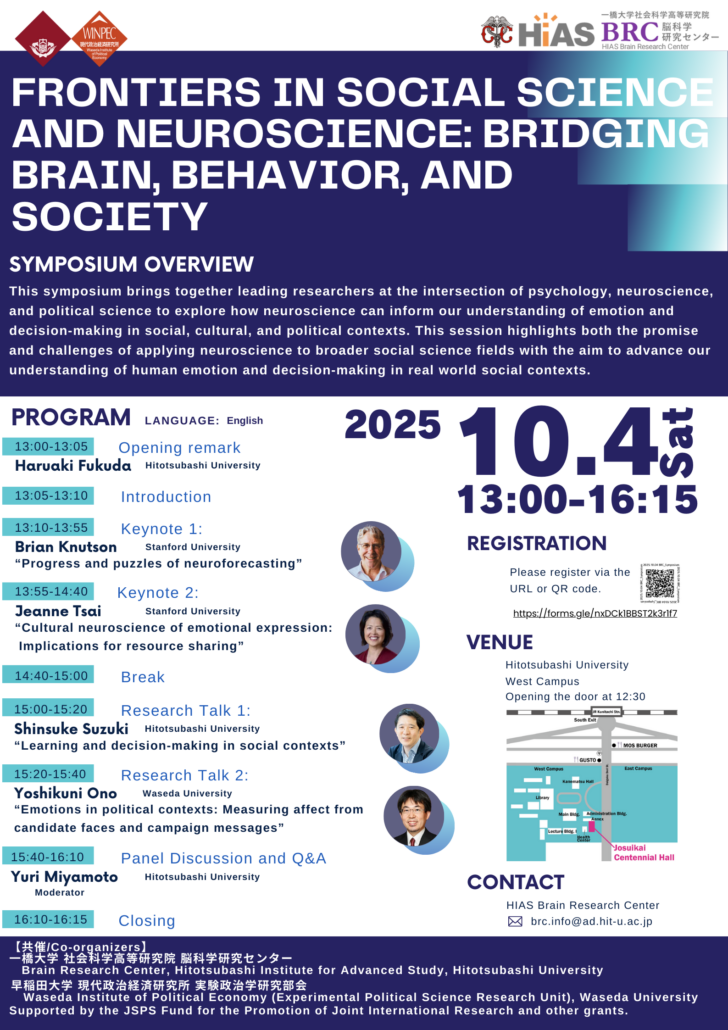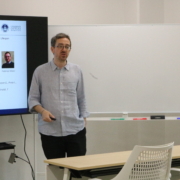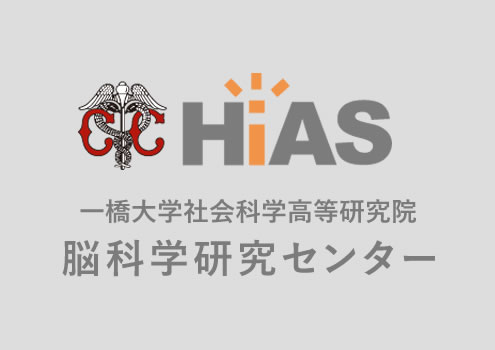BRC Symposium Report:“Frontiers in Social Science and Neuroscience: Bridging Brain, Behavior, and Society”
Date: Saturday, October 4, 2025
Venue: Josuikai Centennial Hall, Hitotsubashi University
Co-organized by: Brain Research Center, Hitotsubashi Institute for Advanced Study, Hitotsubashi University
Waseda Institute of Political Economy (Experimental Political Science Research Unit) at Waseda University
________________________________________
On October 4, 2025, Hitotsubashi University and Waseda University co-hosted the international symposium “Frontiers in Social Science and Neuroscience: Bridging Brain, Behavior, and Society.” We were honored to welcome Professor Brian Knutson and Professor Jeanne Tsai from Stanford University as keynote speakers. A total of 77 participants attended the event, which was a resounding success.
The symposium opened with greetings from Professor Haruaki Fukuda, Director of the Brain Research Center at Hitotsubashi University, followed by overall moderation by Professor Yuri Miyamoto, who ensured the smooth progression of the program.
________________________________________
Keynote by Professor Brian Knutson (Stanford University)
Professor Knutson presented the latest findings on neuroforecasting, focusing on how neural signals can generalize beyond individual differences to predict aggregate behavior. His talk highlighted results from a recent study (Genevsky, Tong, & Knutson, 2025, PNAS Nexus), which demonstrated that neural activity from a small, non-representative group can forecast the choices of broader populations—even when behavioral data cannot.
The presentation attracted significant attention from participants interested in the applications of neuroforecasting to marketing, public policy, and beyond.
________________________________________
Keynote by Professor Jeanne Tsai (Stanford University)
Professor Tsai introduced a series of studies on culture and emotion, a field she has developed over many years. Her research demonstrates how cultural values and “ideal affect” influence emotional experience, expression, interpersonal behavior, and even neural responses. For example, Park et al. (2018, Culture and Brain) used fMRI to examine how American and Chinese participants evaluated different types of smiles, showing that cultural differences in brain reward responses explained differences in affiliative judgments. More recently, Blevins et al. (2023, SCAN) examined whether these neural patterns generalize across different cultures and groups, finding consistent links between culture, emotion, and brain activity. These findings provided important insights for both cultural neuroscience and social psychology, prompting numerous questions and lively discussion among the participants.
________________________________________
Research Talks
The symposium also featured research talks by two distinguished Japanese scholars.
Professor Shinsuke Suzuki (Hitotsubashi University) presented a talk titled “Learning and decision-making in social context,” reporting on recent experimental studies using the MRI scanner installed at the Brain Research Center, Hitotsubashi University.
Professor Yoshikuni Ono (Waseda University) gave a talk titled “Emotions in political contexts: Measuring affect from candidate faces and campaign materials,” presenting cutting-edge research that analyzes politicians’ facial expressions to explore the role of emotion in political contexts.
________________________________________
Panel Discussion & Closing
The Panel Discussion and Q&A, moderated by Professor Miyamoto, brought together the day’s themes for a lively exchange of interdisciplinary and international perspectives, deepening our understanding of the intersections between brain, culture, emotion, and decision-making.
The symposium concluded with closing remarks by Professor Yoshikuni Ono (Waseda University).
This symposium provided a valuable opportunity to engage with cutting-edge research at the intersection of culture, emotion, and decision-making, and fostered meaningful international academic exchange. We extend our sincere gratitude to all the speakers, participants, and collaborators who made this event possible.
(Text: Yoko Mano)
